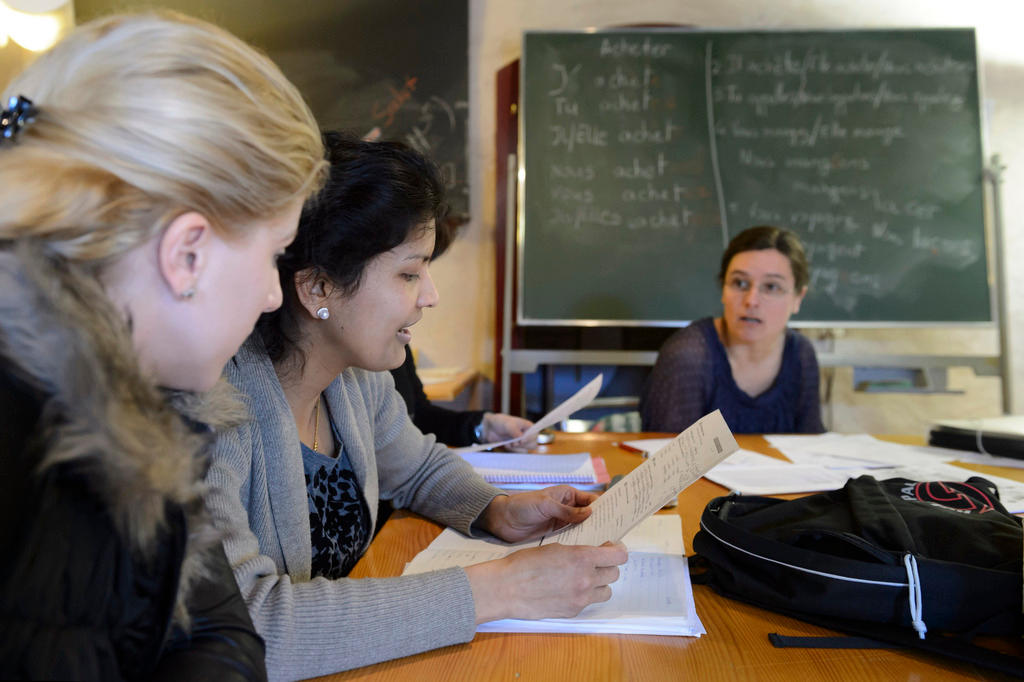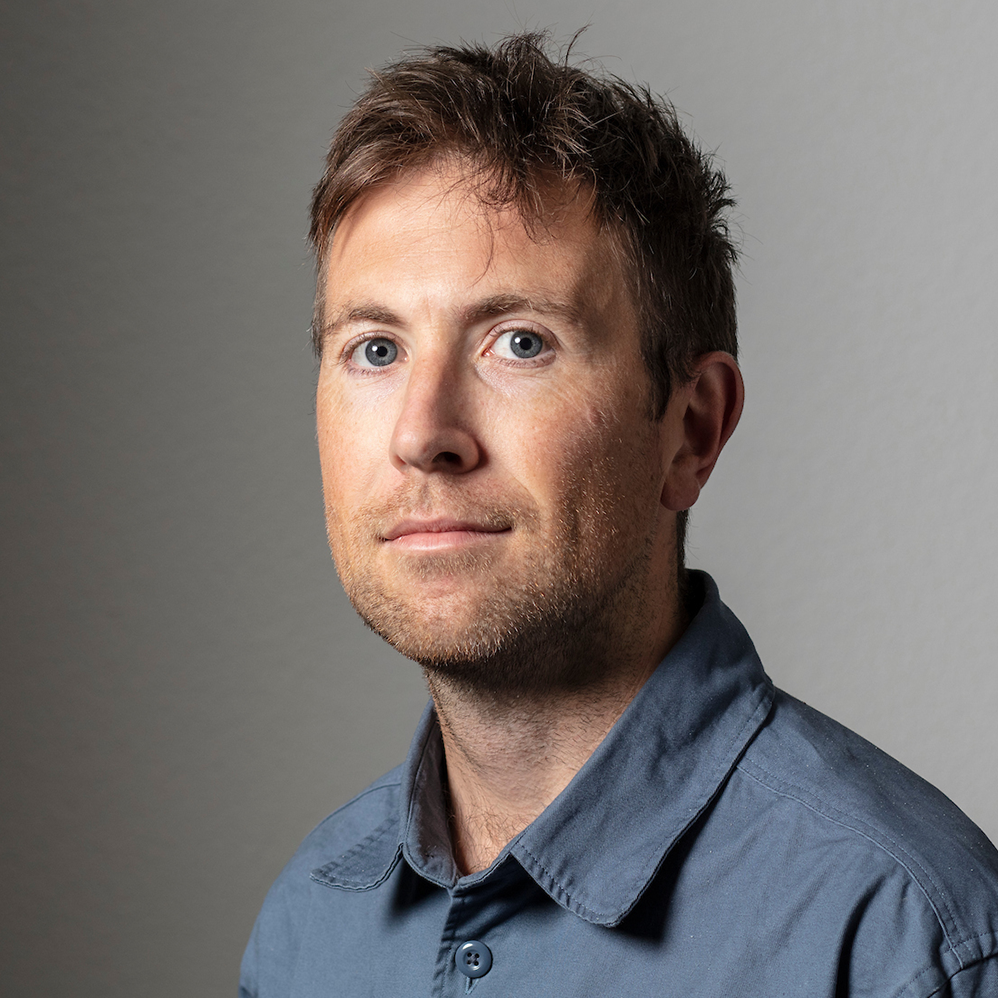‘Journalists must get a grip’ to protect independent media

How has mass media, and its impact on society, changed over the past 40 years? Otfried Jarren has spent his career immersed in that question.
As professor in the Department of Media Research and CommunicationExternal link at the University of Zürich, his interests include the structure of media as well as its links with politics. Jarren also presides over OFCOMExternal link, the Swiss Federal Media Commission.
This article is part of ongoing coverage of the International Public Media Conference on March 4 in Bern, where Jarren will give the closing keynote.
He weighed in on the future of public media, democracy, and how journalism can adapt to rebuild trust and credibility in the digital age.
swissinfo.ch:Ohne Journalismus keine Demokratie! (Without journalism, no democracy!) How appropriate, or exaggerated, is this mission statement of the recent Swiss media venture Republik magazineExternal link?
Otfried Jarren: Journalism plays an observational, intermediary, and critical role in society. It acts on the public’s behalf. It also presents the possibility for having debates on socially relevant themes. It provokes comments. It evaluates and connections. All of this is constitutive of a democratic society. All of this is not done by social media.
swissinfo.ch: Do public broadcasting and journalism play a special role beyond the private sector in a democratic society?
O.J.: Yes, the public broadcaster should, because of how it is financed, be as independent as possible from economic and political forces. It should be financially secure enough to offer solid, convincing journalism, reporting from all regions and cantons, from the federal level, the European level – from the whole world. To do this it needs a lot of correspondents and offices, and journalists must have time and money to do proper research. Independence is of the utmost objective.
swissinfo.ch: In many European countries trust in media is remarkably low; accusations of fake news and the ‘lying press’ are widespread. What happened? Is this the fault of media, or rather a case of shifting public expectations?
O.J.: Media are linked with prevailing political institutions. A loss of trust in parties or administrations can thus ‘rub off’ on media – because they are too close, because media and journalism are too close to power. Media, and journalism, must be able to keep a distance. They are not simple channels for passing on what the powerful want to say. Proximity to power can corrupt.
However, there are some populists, like the US president, who attack the media, because they (rightly) fear its independence and judgement. But for a figure of public authority to label the media as purveyors of ‘fake news’ is wrong; it’s illegitimate. Media need to observe and criticise politicians. Sweeping populist statements only aim to dispute and delegitimise democratic institutions, to damage their credibility.
Of course, we can and should criticise the faults and mistakes made by media and journalism – but in an appropriate way. When you question the fundamental structures of democracy, you leave the realm of possible debate. Democracy is based on separating powers and on criticising, but not on the disparaging of institutions.

More
Shedding light on populism, media in direct democracy
swissinfo.ch: In 2017, you said that ‘journalism can only save itself’. How can it do this? Do you see any promising signals?
O.J.: Journalists, as tradespeople, professionals, and peers, must get a grip and organise themselves. Right now, this isn’t being done, or it is not being done enough. It’s up to them to further develop the practice of journalism. They must also ensure that, internally, journalistic norms and rules are enforced. They do this, but much too little.
swissinfo.ch: Is there such a thing as ‘independent journalism’?
O.J.: Journalism is as independent as its practitioners want it to be. Society expects a high level of independence. Whoever is not seen as being independent can expect bad consequences – credibility will drop.
swissinfo.ch: Is there such a thing as ‘quality journalism’?
O.J.: Journalism is journalism – for me, the professional work of all journalists is equally important.
swissinfo.ch: A UK parliamentary committee last week released a report criticising Facebook and recommending more regulation of such companies. Is more oversight of social media platforms needed? Or are they, as some claim, simply that – neutral platforms?
O.J.: The regulation of social media is necessary because it has some sides that are harmful to democracy. The business dealings of social media companies are not transparent. Shares in these platforms are being denied to their very users. The platforms did not want to be held accountable for various violations of communications laws.
The platforms also have no universal communication with their users, even though they promote an ideology of participation. They talk about community and cooperation, but only use these things for their own economic goal of enrichment. The institutional impact of social media is substantial, and we must promote more research, reflection, and discussion about it.
swissinfo.ch:After a 40-year career spent researching media and communication trends in Germany and Switzerland, you are planning to retire. With what level of optimism or pessimism do you leave the world of media?
O.J.: Hopefully I can, and will, continue to participate in analysis and debate. That’s how I’d like it to be… I’ll do it with joy, and optimistically. But there’s a time for everything.
On March 4, a year after the No Billag people’s initiative was rejected by Swiss voters, the SBC is co-organizing (along with BAKOMExternal link, FMECExternal link, and SACMExternal link) the International Public Media Conference (IPMC) in Bern.
Speakers, including media professionals from Switzerland and abroad, will address the role of public media in providing quality information and safeguarding democracy, and how such media needs to adapt to meet future challenges.
swissinfo.ch will offer live-streaming access to the conference on March 4. The programme and registration can be found hereExternal link.

In compliance with the JTI standards
More: SWI swissinfo.ch certified by the Journalism Trust Initiative



You can find an overview of ongoing debates with our journalists here. Please join us!
If you want to start a conversation about a topic raised in this article or want to report factual errors, email us at english@swissinfo.ch.